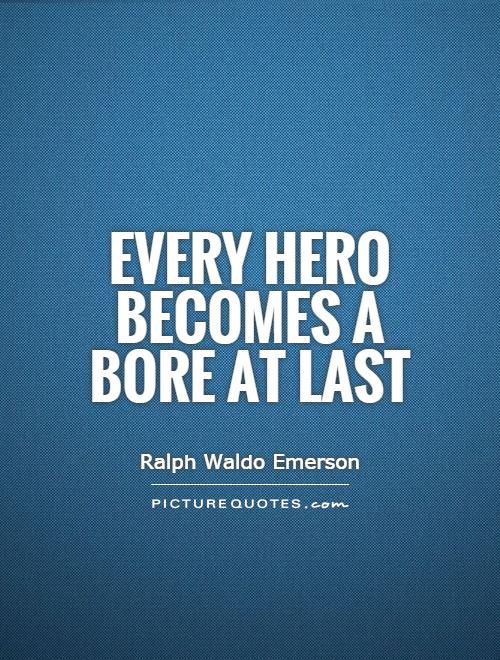Every hero becomes a bore at last

Every hero becomes a bore at last
Ralph Waldo Emerson, a prominent American essayist, lecturer, and poet, is often quoted as saying, "Every hero becomes a bore at last." This statement reflects Emerson's belief that even the most admirable and heroic figures eventually lose their appeal and become tiresome or uninteresting to others.Emerson's assertion can be interpreted in several ways. One interpretation is that heroes, by virtue of their exceptional qualities and achievements, often set themselves apart from ordinary individuals. As a result, they may become isolated or alienated from those around them, leading to a sense of detachment or disconnection. This can make it difficult for others to relate to or empathize with the hero, ultimately causing them to lose interest in the hero's story or accomplishments.
Another interpretation of Emerson's statement is that heroes, like all human beings, are subject to the passage of time and the inevitability of change. As heroes age or face new challenges, they may struggle to maintain the same level of success or relevance that once defined them. This can lead to a sense of stagnation or decline, making the hero's story less compelling or inspiring to others.
Emerson's observation also suggests that heroes, despite their extraordinary qualities, are ultimately fallible and imperfect. As heroes reveal their flaws or vulnerabilities, they may lose the aura of invincibility or infallibility that once surrounded them. This can make them seem more human and relatable, but it can also diminish their appeal as larger-than-life figures worthy of admiration or emulation.












 Friendship Quotes
Friendship Quotes Love Quotes
Love Quotes Life Quotes
Life Quotes Funny Quotes
Funny Quotes Motivational Quotes
Motivational Quotes Inspirational Quotes
Inspirational Quotes